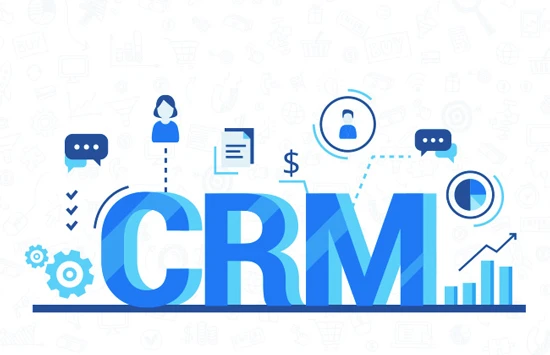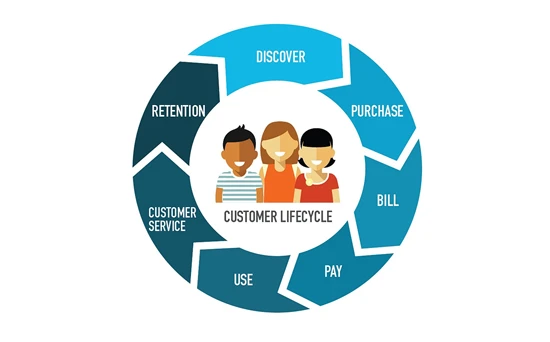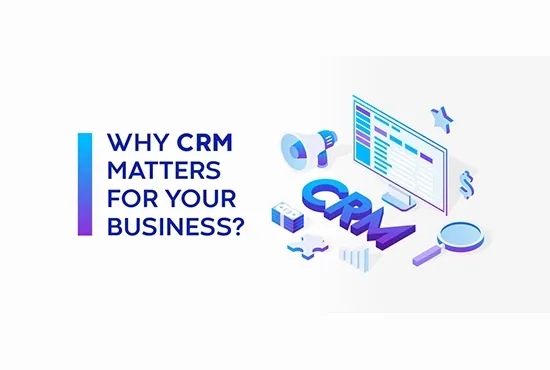When choosing a Customer Relationship Management (CRM) system for your business, most people spend their time evaluating the CRM software's features, cost, configurability, scalability, and speed of implementation. All of these are good and important. But before all that, you should take a look at yourself.
CRM software isn't for everyone. Certainly, a good CRM, if implemented correctly, can benefit any business of any size and in any industry. But sometimes a company simply doesn't have the CRM culture. This isn't the company's fault. In fact, we encounter many large, profitable, and growing organizations that simply cannot succeed with just a CRM software. You should ask yourself these three questions. If the answer is positive, you may want to reconsider your decision to choose CRM software.

1: Do you have the right resources?
In the end, your CRM software is just a database. But it's a database that, if used correctly, can be accessed by most of your employees, and the CRM software helps them significantly improve productivity, profit, and sales. Like any asset, it requires investment, and like any investment, it requires resources – both time and money.
Software costs will only be a small part of your overall investment. For the CRM software to grow with your company, you will need to involve different people. You may need to hire external partners, consultants, developers, builders, and specialists in the program. You will definitely need your employees to spend their time on the CRM software. You will need an admin for the CRM software and database, IT support, and training for your employees.
All these activities require time, and time is money. You may need overtime. Implementing CRM software will certainly lead to many questions, frustration, challenges, and pressures from those around you. These behaviors are natural. Regardless, it will require resources, and you need to ensure they are available.
2: Is there a clear way to evaluate your return on investment?
If you are going to spend $1000 or $1 million on CRM software, you are doing so instead of investing in other areas. Is this a good investment? Wouldn't it be better to invest in buying new equipment or products, or hiring customer service employees? Or maybe just keep your capital in the bank? To justify whether you need a CRM software in the first place, and whether you will have a satisfactory return on investment in the future, you need a clear method for evaluating your ROI.
It's not as hard as you think. You run your business for profit, so a CRM, like any other investment, should generate more profit for you. There are really only two ways to generate more profit: increase your sales or reduce your costs. It's just math.
Think about your sales system. How many good opportunities have you missed in the past few years due to a lack of follow-up on important issues or failure to complete them? How much have you lost because your employees haven't been able to communicate properly with customers? How many customers have you lost because you didn't have a close relationship with them?
Now think about the costs. How will a CRM help you improve efficiency? For example, respond to calls in a short time or handle problems faster? Do more work with fewer people? Can you quantify this?
Establish these profitability metrics before you start working with this system, and then measure them during and after implementation. If you can't do this yourself, it's best to reconsider your investment, as buying CRM software depends on how you convince yourself that your investment is worthwhile.
3: Are you determined?
A CRM can bring many benefits to your company, but it can also be a lot of work. While it's just a database, it can be a powerful one. However, to be useful and productive, the data must be accurate and complete. If the data isn't good, your system is garbage.
So how do you ensure you have a great database? Employees need training, and internal controls over the data need to be established. Specific rules and processes need to be created and then enforced. Everyone needs to be accountable for what they do. Employees should enter important information after calls and appointments with customers, and not really waste their time in the CRM software. All this effort takes time and requires change. People generally don't like change, especially when they don't see the results or how the change helps.
This is your job. Once you've decided to go down this path, you need to be a decisive leader. You can't go back. You shouldn't revert to your old ways because of a few complaining customers. You listen to people, make adjustments, and ensure that problems are solved. But you are committed to building your CRM.
Conclusion
The reality of 2018 is that there are many large CRM systems out there that, if implemented correctly, will contribute to the profitability and value of the company. But there's no perfect system. So your job is to choose what's right for your company, and then make sure you have the right resources, clear metrics for evaluating your return on investment, and then the long-term radar for the business. When we ask companies that have had unsuccessful CRM systems why their CRM failed, their reason is that they never asked themselves these questions before starting.




